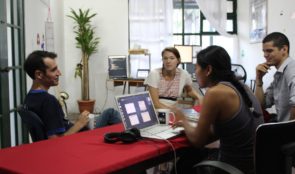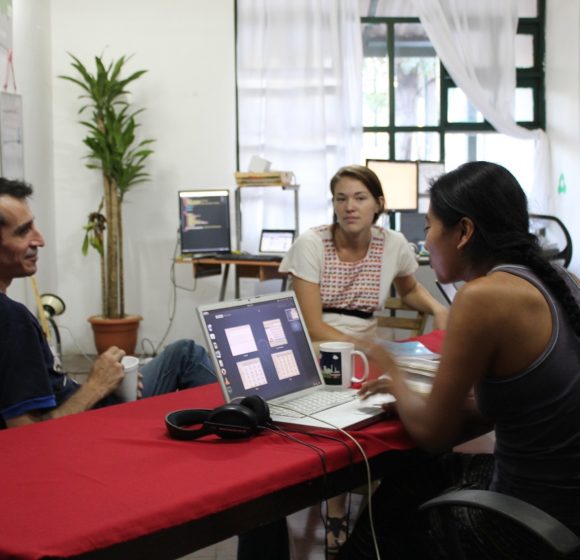“You are not technical enough in performing to level three engineering capabilities. I am not sure you were even meant to be an engineer. I am placing you on a performance improvement plan. You have 90 days to prove yourself.”
As a mid-career engineer, this feedback from my manager was devastating. Prior to this, I received team achievement awards and a promotion. At my high school graduation, I graduated with honors in the top 15 percent of the class and was selected to be the class speaker. I talked about overriding your obstacles to find a path to success.
Now I felt like I was a complete failure with no idea how the road to recovery would begin.
I am one of the 9 percent African Americans in the STEM workforce. A part of me felt like not only had let myself down, but also the others who will come behind me.
During this graduation season, many students from 8th grade to seniors in high school and college will finish at the top of their class while others have struggled the entire way to completion. All of these graduates as well as many early and mid-career individuals are equally susceptible to the reality of some things not going exactly as planned. They will undoubtedly discover how going from a fixed to growth mindset is something to embrace.
I know how they feel because I have been there. But, I also now know how to turn failure around.
I survived the unfavorable performance review, but three years later I was laid off. I decided not to re-enter the engineering workforce in the traditional sense. Instead, I chose to be an advocate for change. In order for more women and more African Americans to have an opportunity to be successful in STEM fields they need to be better prepared as students and as professionals. Now I help them to navigate through the failures and the challenges that they are apt to encounter in STEM fields.
Reinventing failures helps to build skills like resiliency, crisis management, problem solving, strategic insight and career development training for successful transitions into different sectors. It is not about denying experiences or fabricating success.
It is about reframing experiences to learn from them.
The first step in the reinvention process is letting go of the idea that following a checklist of standards automatically guarantees personal or professional career wins. The fear of failure begins in how education is often centered in step by step approaches for learning while leaving little room for understanding how and why outcomes can still be unpredictable.
Examining the personal and intellectual struggles of successful people like Albert Einstein and Marie Curie, Columbia’s University’s Teachers College study shows that students are reassured that the growth mindset of continuing to develop your intelligence over time helps you to outperform your peers.
Development of this mindset requires being mindful to never lose interest early on, simply from not passing a test and not seeing the value of failing and how to turn it into success. No matter how much you study and work hard, failure is still an option and the reality of finding a way to bounce back from it isn’t always easy.
In my recent TEDx Plano talk, “Get Over It and Get on With It” I addressed failures and recovering from it all. I know that an individual’s professional story matters and adds value in a culture where she is celebrated.
On the day of rehearsals for my TEDx speech, I froze in the middle of my talk. The anxiety of trying to overcome perfection and the fear of failing again crept in. Fortunately, I had a mentor to help me remain calm to confidently enter the stage later.
Finding great mentors who challenge and help you to build the resiliency it takes to move beyond career challenges enables you to find a path to career recovery. The best mentors will also share personal and intellectual struggles to reassure you it’s all a part of the path to greatness.
I expect that in the future I will once again fail, it is part of the process of learning and growing. The gift of past failed experiences reminds that this is just part of the process.
You are not alone in failing. Using the lessons from an imperfect path can catapult you to future success.
Alicia Morgan is vice president of education and programs at Frontiers of Flight Museum, a TEDx speaker and Women of Color in STEM Conference K-12 Promotion of Education Honoree. She is a Public Voices Fellow through The OpEd Project.
Worth your time
- Non Gamstop Casinos UK
- Best Non Gamstop Casinos 2025
- Non Gamstop Casinos UK
- Non Gamstop Casinos UK
- Casinos Not On Gamstop
- Casinos Not On Gamstop
- Casino Not On Gamstop
- Casino Italiani Non Aams
- Online Casino Canada
- Non Gamstop Casinos Uk
- Best Non Gamstop Casinos
- Meilleur Casino En Ligne France
- Casino Sites Not On Gamstop
- Non Gamstop Casino Sites UK
- Casino Online Non Aams
- Casino Sites Not On Gamstop
- Non Gamstop Casinos
- Meilleur Casino En Ligne France
- Meilleur Casino En Ligne Francais
- Casino Sites Not On Gamstop
- Non Gamstop Casinos UK
- Casinos Not On Gamstop
- Migliori Siti Casino Non Aams
- Meilleur Casino En Ligne
- Casino Non Aams
- Meilleur Casino En Ligne Belgique
- Siti Non Aams
- Tennis Paris Sportif
- Site De Paris Sportif En Ligne
- Casino En Ligne France
- Sweet Bonanza Avis
- ブック メーカー おすすめ
- Online Casino App Real Money
- Casino Français En Ligne
- Casino Italia Non Aams
- Meilleur Casino En Ligne Belgique
- Meilleurs Casino En Ligne
- Nouveau Casino En Ligne
- Casino Con Crypto















